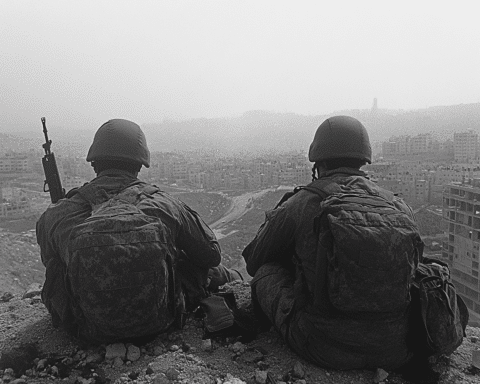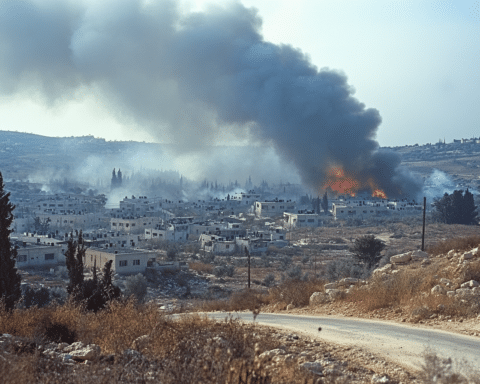Lebanon was reeling Monday as residents surveyed the damage left by Israeli airstrikes that targeted multiple branches of Al-Qard Al-Hassan, a financial institution tied to Hezbollah. While Israel claims the bank funds attacks, it also serves as a critical lifeline for many Lebanese citizens struggling with the country’s financial crisis.
Strikes Across Lebanon Leave Destruction in Their Wake
The Israeli military launched overnight strikes across Beirut’s southern neighborhoods, the Bekaa Valley, and south Lebanon, regions known for Hezbollah’s influence. One of the airstrikes destroyed a nine-story building in Beirut that housed a branch of Al-Qard Al-Hassan. Smoke could be seen rising from various locations on Monday morning. Though residents were warned to evacuate, no casualties were reported.
The military operation comes as Israel aims to push Hezbollah forces away from the border following months of hostilities. These escalations began after the October 7th, 2023, Hamas attack from Gaza, which claimed 1,200 Israeli lives. Since then, airstrikes have devastated both Gaza and Lebanon, with over a million Lebanese displaced by the conflict.
Hezbollah-Run Institution Fills Banking Void Amid Lebanon’s Crisis
According to Avichay Adraee, the Israeli military’s Arabic spokesperson, the strikes targeted Al-Qard Al-Hassan branches used to “store money for the military arm of Hezbollah.” He stated that the bank helps Hezbollah fund arms purchases and pay fighters, adding, “The goal is to prevent the group from rearming.”
Despite being sanctioned by the U.S. and Saudi Arabia, Al-Qard Al-Hassan plays an essential role in Lebanon’s financial ecosystem. Many Lebanese civilians, unrelated to Hezbollah, rely on the bank as an alternative to the country’s failing financial institutions. “All branches were evacuated, and deposits relocated to safe areas,” the institution assured customers.
Diplomatic Efforts Struggle as Tensions Escalate
The U.S. envoy Amos Hochstein arrived in Lebanon on Monday, hoping to restart cease-fire discussions. He highlighted the limitations of U.N. Resolution 1701, which ended the 2006 Israel-Hezbollah war, saying, “1701 was successful at ending the war in 2006, but we must be honest that nobody did anything to implement it.”
Meanwhile, Israel apologized for mistakenly killing three Lebanese soldiers in a strike that targeted an area previously used by Hezbollah. Lebanon’s military is widely respected, but its limited strength means it cannot confront Hezbollah nor repel Israel’s military operations.
Regional Cease-Fire Talks Face Obstacles Amid Gaza Conflict
Amid efforts to de-escalate tensions in Lebanon, the U.S. also hopes to negotiate a cease-fire in Gaza after Hamas leader Yahya Sinwar was killed last week. However, Hamas remains firm in its demands: Israeli withdrawal from Gaza, a permanent cease-fire, and the release of Palestinian prisoners.
Israel, under Prime Minister Benjamin Netanyahu, continues its offensive in Gaza, saying it will “maintain an open-ended security presence” to prevent Hamas from rearming. The conflict has killed over 42,000 Palestinians, with northern Gaza particularly devastated.
Diplomatic Solutions Seem Distant Amid Conflict
As Lebanon clears the rubble from recent airstrikes and tensions persist between Israel, Hezbollah, and Hamas, the prospect of peace appears increasingly difficult. The region faces immense challenges, with millions displaced and lives shattered. Diplomatic efforts, though ongoing, have yet to produce any meaningful breakthroughs. Without a clear path forward, Lebanon and the broader region remain on edge, bracing for what may come next.



